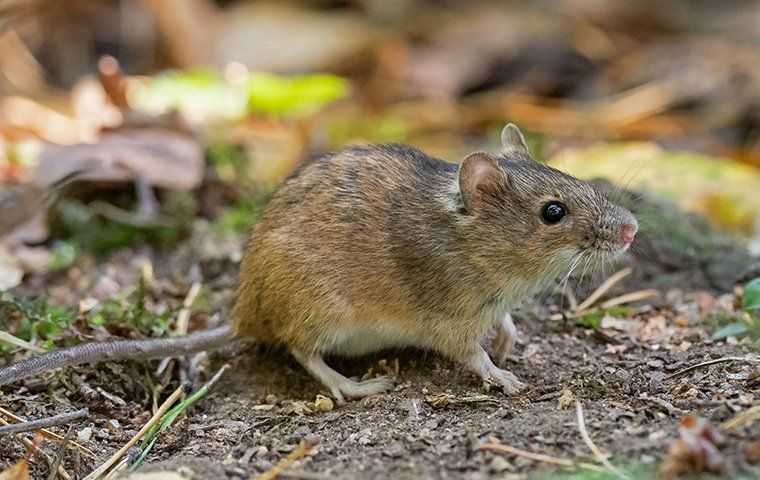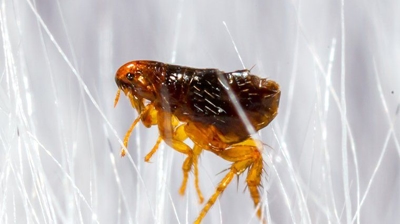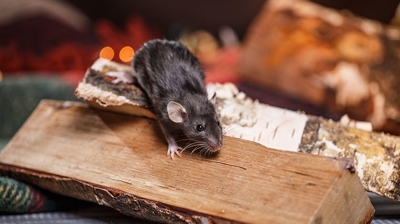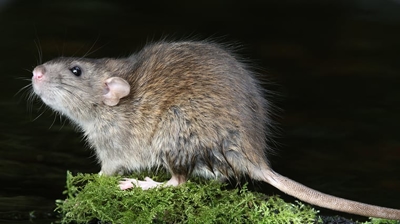
Rodent Identification & Prevention
What are rodents?
Rodents are one of the most dangerous and prolific types of pests in the world, and that's no exception here in Michigan. These disease-spreading mammals can make you sick and destroy your house, so you need to avoid them at all costs.
Rodents are a group of mammals characterized by a pair of constantly growing upper and lower incisors. The rodent order includes squirrels, gophers, and a large number of other small mammals. However, when it comes to negative interactions with rodents in your home, rats and mice are the primary offenders.
Are rodents dangerous?
Rodents are dangerous in two primary areas: your health and your property. Rodents can threaten your health by spreading serious diseases like hantavirus, leptospirosis, tularemia, and salmonella. Rodents can also expose you to flea and tick-borne diseases, like Lyme disease and Rocky Mountain spotted fever, by introducing these parasites onto your property.
Rodents are also destructive little buggers. They have to chew on everything all the time to grind down their incessantly growing teeth. That translates into damage to walls, plumbing, electrical wiring, and many other components of your home. Rodents also love to rip up plush things for nesting materials – so even your furniture and insulation aren't safe.
Where do rodents live?
Rats and mice live wherever is convenient. In the forest, they might live inside hollow trees or in burrows or nests in the ground. However, when they take up residence in your house, they'll live anywhere that's sheltered and out of the way. That may be in your attic or crawl space. It might also be directly inside your walls. Mice and rats love to dig into and nest in soft insulation.

What Makes Us Different?
-
Veteran Owned & OperatedProudly serving with honor, expertise, and dedicated to quality.
-
Over 151 Businesses ServicedSureShot Pest Control is proud to be a catalyst of change for hundreds of local businesses in Michigan.
-
1,500 Happy Customers & Counting!We are proud to maintain an A+ rating from the Better Business Bureau and bring the best to our clients.
-
30+ Years Of Combined ExperienceWe have spent a quarter-century in the pest control industry, and we have no intention of stopping now!
How do I get rid of rodents?
Getting rid of rodents from your home can be tough without help, especially if you already have a rodent infestation. Fortunately, a rodent-free house is just a click or call away! Here at SureShot Pest Control, our local rodent control experts know how to deal with any size infestation, no matter how well-established.
Give us a call or visit our contact page to learn about our residential and commercial pest control plans and be on your way to a rodent-free home or business today.


Hear From Our Happy Customers
At SureShot Pest Control, your satisfaction is our priority! See for yourself what our customers have to say about working with us.
-
"Professional & Courteous"
Chris was a wonderful knowledgeable man. He answered all questions with respect and engagement. I have used SureShot for years and will continue to do so.
Anne W. -
"Great customer service!"
When we first started our service in April 2017 I had to have them come back due to my son getting a spider bite within a week of service. They came back the next day and respirated with a different solution. My son loved to ask our technician about all bu
Kayla G. -
"A Loyal Customer"
I liked the suggestions that Christian had for the mice in the garage. He was very informative. Have used SureShot for over 20 years.
Irene E. -
"Highly recommend"
We have had Sure Shot for five plus years and they have been amazing from start to finish.
Michael L. -
"Great Company"
I have had Sure Shot for over 5 years and not one mouse or a spider. When I call and need something they schedule me for the next day. Recommend this company to everyone.
Bill P. -
"I would recommend them every time!"
I have used SureShot for annual yard spraying to keep mosquitos away and it works great and the pricing is much more affordable than others in the area.
Kristina M. -
"No One Better!"
We have been using Sure Shot for several years and multiple rental properties. They have been fantastic to work with.
Sarah S. -
"Always Make Everything Easy for Me"
I've been with Sureshot for many years. They have been consistent and responsive to my needs and requests.
Donald M.
Stay In The Know
-
 Signs of a Rodent InfestationRead More
Signs of a Rodent InfestationRead More -
 Tackling Flea Infestations Head-On In GreenvilleRead More
Tackling Flea Infestations Head-On In GreenvilleRead More -
 Start The Year Off Right: Winter Pest Prevention Tips For Greenville ResidentsRead More
Start The Year Off Right: Winter Pest Prevention Tips For Greenville ResidentsRead More -
 Greenville's Guide To Wildlife ControlRead More
Greenville's Guide To Wildlife ControlRead More -
 Keeping Rodents Out: Expert Control Strategies For Greenville PropertiesRead More
Keeping Rodents Out: Expert Control Strategies For Greenville PropertiesRead More -
 How To Get Rid Of Cockroaches: A Comprehensive Guide For Greenville HomeownersRead More
How To Get Rid Of Cockroaches: A Comprehensive Guide For Greenville HomeownersRead More -
 Rodent Control 101: Essential Tips For Keeping Your Greenville Property Rodent-FreeRead More
Rodent Control 101: Essential Tips For Keeping Your Greenville Property Rodent-FreeRead More -
 Eliminating Bed Bugs: Strategies For Effective Bed Bug Control For Your Home In GreenvilleRead More
Eliminating Bed Bugs: Strategies For Effective Bed Bug Control For Your Home In GreenvilleRead More


.2403141246092.png)










